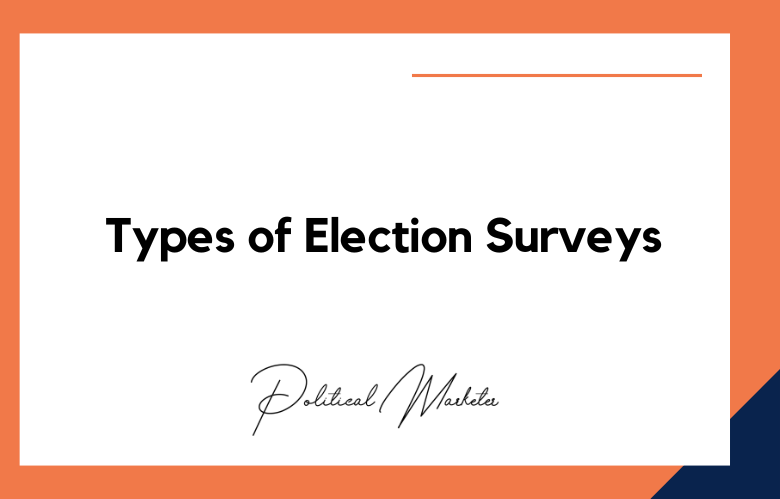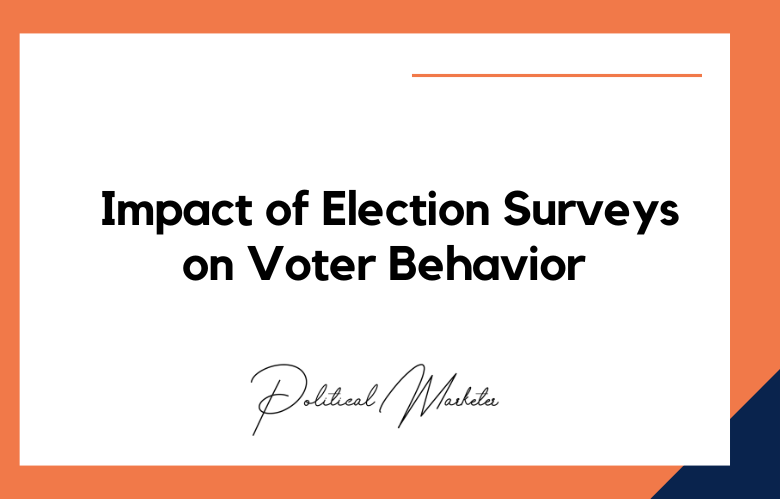In today’s hyper-connected world, political campaigns leverage location-based technology to target potential voters. By understanding where and when people locate an ad message, campaigns can better craft their messages to reach the right audience at the right time.
Let’s explore how this works.
In today’s digital age, political campaigns have moved beyond traditional marketing tactics like television ads and billboards.
Political candidates now use data-driven strategies to target specific audiences to maximize their messages’ impact.
This includes using your phone’s location to send targeted messages—often without you even knowing it. Let’s examine how campaigns are using this tactic.
How Location Data is Collected
Political campaigns increasingly use location data collected from your phone to determine where you are and what you may be interested in.
This data can tell them where you live, where you shop, when you go to the gym, or even which restaurants or cafes you frequent.
In addition, most phones come with pre-installed apps that collect and store information about your devices, such as their make and model, operating system version, and more.
Political campaigns use all of this data for targeted marketing purposes.
How does it Work?
Every time you use your phone, its location is recorded and stored in your device’s operating system.
Political campaigns or other organizations that want to target potential voters with ads, messages, or even direct mailers can then access this data.
By gathering this information, they can create detailed profiles of each voter, which they can use to tailor their messaging and target specific demographics with greater precision than ever before.
The Benefits of Location Data
Location data offers unprecedented accuracy when it comes to targeting potential voters.
Instead of broad demographics like age, gender, and ethnicity, campaigns can hone in on smaller subsets of people based on their locations and behaviors—such as where they go after work or which stores they frequent most often.
This allows them to craft targeted messaging that appeals directly to individual voters’ needs and interests, increasing the chances that their message will resonate with them.
The Big Picture
Location data is becoming increasingly important for political campaigns, not just for targeting potential voters with personalized messages.
It also helps campaigns understand the broader landscape of an area’s voting population to allocate better resources, such as volunteers and funds, where it matters most.
By having a complete picture of an area’s voting population, campaigns are better equipped to make strategic decisions about reaching potential voters and maximizing turnout on Election Day.
Using Location Data for Targeted Marketing
By accessing your phone’s location data, political campaigns can tailor their messaging to areas they believe will help them win an election.
For example, suppose a campaign knows that a particular area tends to lean toward its opponent.
In that case, they can use the location data collected from people’s phones in that area to send out highly targeted messages explicitly designed to sway those voters in their favor.
They can also use the same method of targeting on social media platforms like Facebook and Twitter by targeting posts and ads to users identified as living in specific locations or having particular interests.
This helps ensure that their message reaches the right people at the right time—and increases the chances of getting those people out to vote on election day.
Using Your Phone’s Location Data
Your phone is like a tiny computer that can track your location through GPS, Wi-Fi networks, Bluetooth beacons, and more.
Political campaigns can access this data to serve targeted messages based on location and activity.
For example, if you’re walking near a polling station on Election Day, you may receive a notification reminding you to vote for the candidate of your choice.
Location-Based Ads
Location-based ads allow political campaigns to create advertisements tailored specifically for people who live in certain areas or have visited specific locations.
For example, a campaign might target voters who have visited a particular polling station or attended an event related to their campaign.
This allows them to craft ads that speak directly to the interests and experiences of those voters.
Targeting by Demographic
Political campaigns also use location data to target people based on demographics such as age or gender.
For example, they may target younger voters with ads about student loan debt relief or women with ads about reproductive rights.
This approach allows them to focus their messaging more precisely to resonate with specific groups of potential voters rather than attempting a one-size-fits-all approach.
Location Tracking for Political Campaigns
Political campaigns collect and analyze data from mobile phones to better understand potential voters and tailor their messages accordingly.
This data targets individuals based on where they live, what events they attend, and their interests.
It also helps campaigns determine which messages will most effectively connect with voters.
For example, suppose a campaign knows that a person is more likely to support one candidate over another. In that case, they can create targeted ads or messaging that appeal to those views.
Location Data & Audience Segmentation
Location data is used for targeting purposes and allows political campaigns to segment their audiences into different categories depending on the type of voter they are targeting.
For example, specific geographic locations may indicate that the population has higher-than-average incomes or is more likely to vote for one candidate over another.
By understanding this information, political campaigns can create tailored messaging that speaks directly to those who are more likely to support them at the polls.
Privacy Concerns & Opting Out
Opting out of location tracking is available for those concerned about privacy issues.
You can turn off location tracking settings on your phone, including disabling GPS services or turning on “Do Not Track” settings in your browser preferences.
Many mobile phones offer opt-out options within their settings menus and through third-party apps like Google’s Location History feature.
It is essential to note that even with these safeguards in place, political campaigns still have ways to track your movements and target you with ads or messages based on where you have been or what events you have attended recently.
Conclusion
Location data has revolutionized how political campaigns reach potential voters, allowing them to craft tailored messages for those individuals’ needs and interests.
By understanding where people locate an ad message, campaigns can better engage potential voters and increase their chances of success at the polls.
As technology evolves and becomes even more sophisticated,political campaigns will likelys take advantage of more precise methods for targeting potential voters via location data to maximize their effectiveness at the ballot box.
Location tracking technology can make political campaigns more effective by allowing them to target potential voters with tailored content and messaging designed specifically for them.
However, it also raises important questions about our privacy rights regarding the data collected and analyzed without our knowledge or consent.
Thankfully, we can control these settings and opt out to remain in control of how much access our phones have when collecting our data, such as location history information used by political campaigns during election season.
With this knowledge in hand, let’s all stay informed so we know precisely how our private information is being used!
By understanding how these location-based advertising platforms work and what data they use, campaigns can more effectively target voters with their ads.
While this type of targeting is not necessarily new, the technology continues to evolve, and getting ahead of the curve can give your campaign a significant advantage.
Contact us if you need help utilizing these tools in your political campaigns.
Our expert team is experienced in location-based advertising platforms and can develop a targeted ad strategy that gets results.
Call: +91 9848321284
Email: [email protected]
How Political Campaigns Target Voters with Location-Based Ads: FAQs
What Are Location-Based Political Ads?
Location-based political ads use a voter’s geographic data, such as city, neighborhood, or GPS coordinates, to deliver targeted campaign messages relevant to their local context or constituency.
Why Do Political Campaigns Use Geotargeting?
Geotargeting allows campaigns to deliver hyper-relevant messages to voters based on location, improving engagement, personalization, and the likelihood of action such as voting or attending events.
How Does Geofencing Work In Political Advertising?
Geofencing sets a virtual boundary around a specific area. When a mobile device enters this area, it can trigger the delivery of a targeted political ad to that device.
What Types Of Voter Data Are Used In Location-Based Targeting?
Data includes GPS signals, IP addresses, ZIP codes, district maps, device IDs, and publicly available voter registration and demographic records.
Can Campaigns Target Voters By Polling Station Locations?
Yes. Campaigns can geofence polling stations, use proximity-based targeting to remind voters to cast their ballots, or promote early voting options.
What Platforms Support Location-Based Political Ads?
Platforms like Google, Facebook, Instagram, Snapchat, and programmatic ad networks offer location-based targeting capabilities for political campaigns.
How Do Campaigns Ensure Compliance With Location Ad Regulations?
To avoid violations, campaigns must follow platform-specific policies, data privacy laws (like GDPR or CCPA), and election commission guidelines.
Can Location-Based Ads Influence Voter Turnout?
Yes. When timed and delivered effectively, ads tailored to local issues and events can boost turnout by making voters feel more directly addressed and involved.
How Are Swing Districts Or Battleground Areas Targeted?
Campaigns identify high-stakes regions and concentrate location-based spending to persuade undecided voters and maximize vote conversion.
What Are The Benefits Of Hyperlocal Political Ads?
They allow messaging on local concerns (e.g., roads, schools, safety), foster community resonance, and build trust by showing the campaign’s understanding of voter-specific issues.
Can Political Campaigns Retarget Users Based On Location Visits?
Yes. If a voter visits a campaign rally, polling booth, or even an opponent’s event, their device can be tracked (within legal boundaries) for future retargeting.
What’s The Difference Between Geotargeting And Geofencing?
Geotargeting uses broader location data, such as ZIP codes or regions, while geofencing is a more precise, real-time method that triggers ads when a user enters a specific area.
Do Rural And Urban Voters Receive Different Messages?
Absolutely. Based on location-driven segmentation, urban voters might get ads about transit or housing, while rural voters may see content about agriculture, roads, or water management.
Is Location-Based Political Advertising Expensive?
Costs vary depending on ad platform, audience density, and bidding competition, but due to its precision, it often yields a higher return on investment.
How Do Campaigns Track The Effectiveness Of Location-Based Ads?
They use metrics tied to targeted regions, such as impressions, clicks, voter engagement, foot traffic analysis, conversion lift studies, and event attendance.
Are There Ethical Concerns With Location-Based Voter Targeting?
Yes. Concerns include voter manipulation, over-surveillance, and lack of transparency in how data is collected and used.
Can Location-Based Ads Be Used For Grassroots Mobilization?
Yes. Campaigns use them to promote local events, volunteer recruitment, canvassing drives, and community outreach initiatives in specific areas.
How Are Ads Customized Based On Location?
Content, language, imagery, and calls-to-action are tailored to reflect local priorities, candidate promises for that region, and recent developments.
Can Location Targeting Be Combined With Demographic Targeting?
Yes. Combining geography with age, gender, income, and interests creates highly refined segments for impactful messaging.
What Are Some Real-World Examples Of Location-Based Political Ads?
Past campaigns have used location data to run get-out-the-vote ads near polling stations, targeted healthcare ads in swing districts, or flood alerts and relief messages in disaster-hit zones during election cycles.










